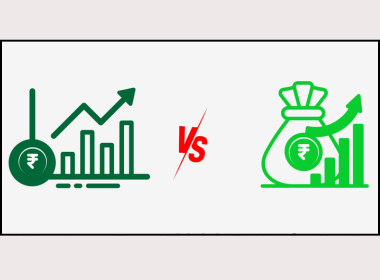Search Suggestions
- Gold Loan
- Money Transfer
- Mutual Funds

WHAT CAUSES THE VALUE OF THE MUTUAL FUNDS TO RISE OR FALL?
Mutual funds are a type of investment formed by collecting money from a pool of investors, which is then further invested into stocks and bonds. Every investor has different investment objectives. It can be a short-term objective to repay a loan or a long-term objective for an investor to save up for retirement purposes. Nowadays, a large number of people are involved in the investment sector. Investors invest in FDs, share market, bonds, etc., but one of the most popular among the investors is mutual funds investment. Since mutual funds are directly linked to the market, the mutual fund prices are in constant fluctuation. Nearly all daily happenings in the share market can influence stock prices. Before discussing what causes the value of mutual funds to rise and fall, let us understand why investing in mutual funds is a popular investment avenue among investors.
Why Mutual Funds are a Good Form of Investment?
Investing in mutual funds is a popular type of investment among investors for a variety of reasons. There are different types of mutual funds based on the scheme’s structure, based on the asset class of the scheme, your investment objectives, or your portfolio management. Let us have a look at why mutual funds are a good form of investment among investors.
- Gives Diversified Portfolio to Investors
Money invested in mutual funds lets an investor have a wider exposure to a basket of different stocks in their portfolio. Even if one or two stocks do not bring in any benefit, the other stocks in the portfolio can compensate for the same. Thus, investing in mutual funds ensures that the investor’s diversified portfolio gives protection against underperforming stocks.
- Connection with the Professional Fund Managers
Mutual funds are actively managed funds, where professional fund managers have the ability to read between the lines and invest only after analyzing the market and judging which investment will yield more profit. Individual investors, on the other hand, may end up selling the stock out of fear. Still, a professional fund manager conducts deep research on stocks before concluding and does not rely on ad-hoc decisions.
- Flexible Form of Investment
Investors can invest even a small amount of money through Small Investment Plans (SIPs), and they have the flexibility to transfer the amount to their bank account by submitting a redemption request to their Asset Management Company (AMC). Also, there is no lock-in period for investors in mutual funds, which means that they can exit the investment at any point and start investing again at their convenience.
Factors that Impact the Value of Mutual Funds
Since investing in mutual funds is highly subject to market risks, some factors cause the value of mutual funds to fall or rise. To begin your investment in the best mutual funds, it is important to consider the various market factors that affect the value of the mutual funds.
- Size of the Fund
Mutual funds are managed by professional fund managers who decide which fund is worth investing in and which is not. Positive cash inflows boost the performance of the funds. On the other hand, if there is too much cash inflow, it becomes difficult for the fund manager to manage the funds and give accurate decisions. A large inflow of funds that is poorly managed cannot yield any benefit. So, it is always advisable to keep the size of the fund optimal while investing in mutual funds.
- Cash Flows
If a fund manager does not have enough funds to invest in securities, then the performance of the funds can suffer a great deal. Having enough cash inflows in mutual fund investment is an important aspect of a well-functioning investment. If there is not enough cash circulation in a particular fund, it becomes difficult for a fund manager to yield enough returns for the investors.
- Fluctuations in the Market
Fluctuations in the market determine the overall performance of a mutual fund scheme. The government policy change also highly impacts the performance of a mutual fund. The unanticipated policy changes can either help in experiencing a significant boost, or if the government policy changes negatively, it can have a negative impact on the value of mutual funds that are invested in the markets.
- Underlying Securities
A fund manager invests in an extensive range of securities after studying and analyzing calculated risks. The performance of a mutual fund is directly proportional to its performance in the market. If the asset allocation of a mutual fund is 80% invested in equity and 20% invested in debt, the performance of the mutual fund will depend on how these securities perform. In case the equity market rises, 80% of the investment portfolio will get benefits. If the equity market crashes, only 80% of the investment portfolio will get impacted. Thus, mutual fund investment can yield good returns if the investor does thorough market research and calculate the risks that can have bearings on different sectors and industries.
- Total Expense Ratio
Total Expense Ratios (TER) are the mutual fund management fees that the AMCs charge to manage the funds. Charges like administration fees, distribution fees, management fees all come under the total expense ratio. So, the net profit that an investor earns is a total gain from the investment minus the expense ratio charged by the AMCs. The TERs of a mutual fund are based on certain factors and can range from 0.5% to 3%. Thus, the positive economy scale can yield you better returns. And if the size of the fund investment is not up to the expectations, it will minimize the returns.
Numerous external factors can affect the performance of the investment made in the mutual funds. If you are looking for mutual fund investment, then Muthoot Finance can help you suit all your financial needs on a single platform. Muthoot Finance gives you access to Professional Fund Managers, offers diversified portfolios, low Total Expense Ratio costs, flexibility to manage your funds, and provides liquidity to transfer the funds to your bank accounts as per your convenience. Through our simple SIP investment scheme, investors can calculate their returns and reach their financial goals easily. Explore our mutual fund scheme that will help you yield better returns at competitive rates.
- Invest in Mutual Fund
- Systematic Investment Plan
- Mutual Fund Calculator
- Liquid Mutual Fund
- Debt Funds
- Balanced Funds
- Equity Linked Schemes
- Tax Saving Schemes
CATEGORIES
OUR SERVICES
-

Credit Score
-

Gold Loan
-

Personal Loan
-

Cibil Score
-

Vehicle Loan
-

Small Business Loan
-

Money Transfer
-

Insurance
-

Mutual Funds
-

SME Loan
-

Corporate Loan
-

NCD
-

PAN Card
-

NPS
-

Custom Offers
-

Digital & Cashless
-

Milligram Rewards
-

Bank Mapping
-

Housing Finance
-

#Big Business Loan
-

#Gold Loan Mela
-

#Kholiye Khushiyon Ki Tijori
-

#Gold Loan At Home
-

#Sunherisoch
RECENT POSTS

Hybrid Mutual Funds Explained: Benefits, Types & Risks
Know More
What Are Balanced Advantage Funds and How Do They Work?
Know More
How to Manage Business Finance Effectively in 2025
Know More
Everything You Need to Know About Debt Financing
Know More
What are Exchange Traded Funds (ETFs)?
Know More
Importance Of Cash Management In Business
Know More
How is a Lump Sum Investment Different from SIP?
Know More
What Is a Grace Period in Health Insurance? Meaning & How It Works
Know More
Life Insurance Vs Health Insurance: What’s the Real Difference?
Know More
Urgent Loans for CIBIL Defaulters in 2025: What You Need to Know
Know MoreFIN SHORTS

Top 5 Reasons to Monitor Gold Rate Daily
Know More
4 Impact of Repo Rate Cut on Personal Loan Interest Rates
Know More
Top 5 Best Performing Mutual Funds in 2025
Know More
5 Factors that affect gold loan processing time
Know More
Relation Between Personal Loan and Your CIBIL Score
Know More
Step-by-Step Way to Get Your First CIBIL Score
Know More
What Does A Revolving Personal Loan Mean?
Know More
When does CIBIL Score Be an Update Date Every Month?
Know More
Which Industries Qualify For SME Loan Schemes
Know More
Do Gold Loan Offer Any Tax Exemption?
Know More
After Paying All Debts How Long Does Cibil Take To Update The Score?
Know More
What Is The Reappraisal of A Gold Loan?
Know More- South +91 99469 01212
- North 1800 313 1212



